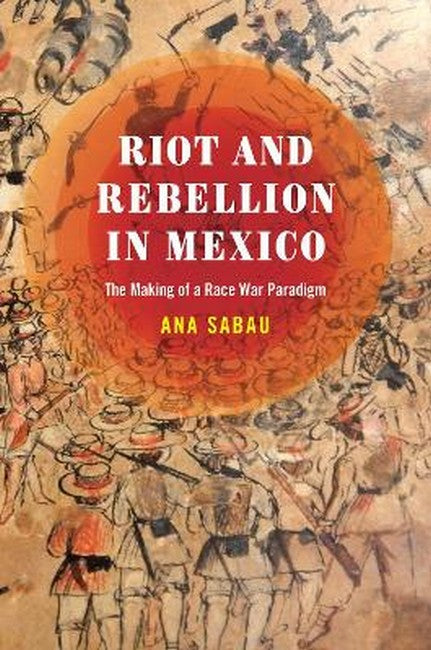Ana Sabau is an associate professor of Spanish at the University of Michigan, Ann Arbor.
Request Academic Copy
Please copy the ISBN for submitting review copy form
Description
Acknowledgments Introduction Part I. The Bajio Chapter 1. Vanishing Indianness: Pacification and the Production of Race in the 1767 Bajio Riots Chapter 2. "So That They May Be Free of All Those Things": Theorizing Collective Action in the Bajio Riots Coda 1. From the Country to the City: Movement, Labor, and Race at the End of the Eighteenth Century Part II. Haiti Chapter 3. The Domino Affect: Haiti, New Spain, and the Racial Pedagogy of Distance Chapter 4. Staging Fear and Freedom: Haiti's Shifting Proximities at the Time of Mexican Independence Coda 2. Haiti in Mexico's Early Republican Context Part III. Yucatan Chapter 5. On Criminality, Race, and Labor: Indenture and the Caste War Chapter 6. The Shapes of a Desert: The Racial Cartographies of the Caste War Coda 3. "Barbarous Mexico": Racialized Coercive Labor from Sonora to Yucatan Conclusion Notes Bibliography Index
A rigorous, thoughtful, and intellectually inspiring genealogy of how the idea of a "race war" was imputed to social conflicts in New Spain/Mexico during the long nineteenth century, as well as how one can discern a "rebel archive" of challenges to that paradigm from racialized social movements at each and every turn. There is no book quite like Riot and Rebellion in Mexico, and it will surely make a serious and sustained impact on many fields for years to come.- David Kazanjian, author of The Brink of Freedom: Improvising Life in the Nineteenth-Century Atlantic World This groundbreaking study takes the discussion of race relations to the forefront of Mexican colonial and postcolonial history, showing how the question of race pervades governance structures, labor regimes, and the material and symbolic organization of space.- Adela Pineda Franco, coeditor of Open Borders to a Revolution: Culture, Politics, and Migration To undertake such an ambitious spatial and temporal project, Sabau closely analyzes a handful of documents generated by colonial and republican authorities as they sought to manage violent opposition.- Hispanic American Historical Review

